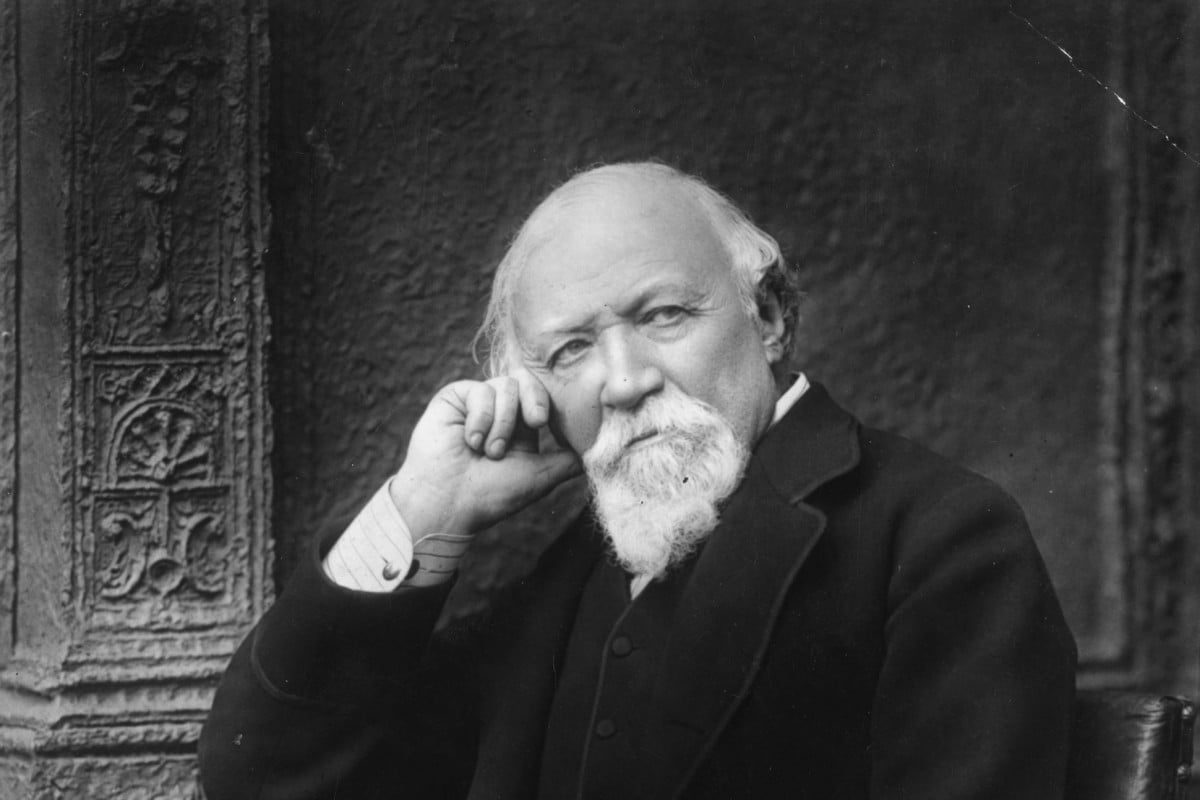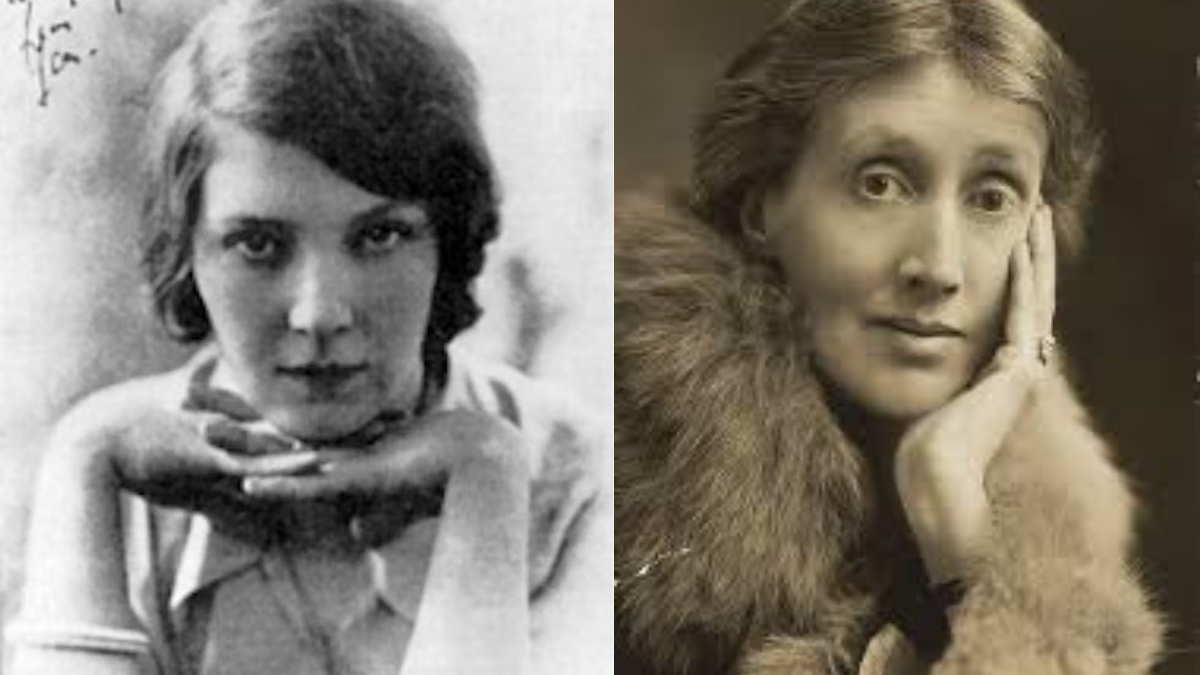Trigger warning: Mention of violence
The Victorian era is notable for the Industrial Revolution, as well as the religious and political instability, social changes, and uncertainty that it brought. English poet and playwright Robert Browning lived in this period riddled with hypocrisy and cultural double standards for women. There were so many rigorous restrictions that valued women being “pure” that the Victorian society took it upon itself to ensure that female sexuality remained unexplored and constrained.
Among his many great works, Robert Browning is most renowned for his mastery of dramatic monologues. He used irony, diction, and imagery to create a haunting impact in his writing. Browning used satire and drama to create a dark and commanding atmosphere, making his poems unpredictable.

Robert Browning’s Porphyria’s Lover is an interior monologue that is also often considered a dramatic monologue by critics. Much like Browning’s other classic dramatic monologue My Last Duchess, this poem not only explores the abnormal psychology of the speaker but also delves into the ethical crisis of the Victorian colonial desire where love and control often meant the same thing.
The male characters in both of these poems, whether the unnamed lover or the Duke of Ferrara, both victimise, exploit, and murder women by projecting their desires to control and own their partners under the guise of love. These characters are perhaps Browning’s attempt at not only satirising love in that era, but also a marking a sharp critique of a time that valued women’s chastity more than their life.
While drawing a connection between Porphyria’s Lover and My Last Duchess, it is essential to comprehend that these two are both dramatic monologues in which the lover tells the story of his love and sorrow. In Porphyria’s Lover, we see a strict and strange guy recounting how he ensured that Porphyria’s love for him remained permanent, whilst in My Last Duchess, a refined and sophisticated man can be observed bragging about his last duchess and how he conquered and dominated her.
Browning’s poem shows the Victorian feature of colonial desire for control in Porphyria’s Lover, as the unnamed speaker changes Porphyria from an autonomous woman with her own agency who broke Victorian society’s stringent conventions to meet with her lover at a cottage at night, to a subservient object whose value lies exclusively in her “purity” the moment she enters the cottage
Browning’s brilliance lies in his ability to shock the reader in the most unexpected manner. However, one can also find the missing hints of something sinister, perhaps in the second reading, for the forthcoming climatic incidents in his dramatic monologues. In Porphyria’s Lover, the poem’s brutal climax in the midst of a loving encounter disturbs readers when the speaker decides to slaughter his beloved Porphyria by strangling her with her own “yellow” hair.
Researchers have largely regarded the nameless lover as insane and yet, a thorough reading of the poem reveals that Browning’s purposefulness in depicting the objectification and final slaughter of Porphyria by her lover is in order to gain complete and permanent obedience from her.
The poem told exclusively from the viewpoint of the violent, and sadistic lover satirises love as a means of attaining absolute obedience and control through violence. As Porphyria’s Lover concludes, Porphyria’s dead body is propped up by her lover and made to sit beside him all night. Robert Browning may be attempting to emphasise the lover’s control over Porphyria, which has become unlimited and inescapable in her death, through this particularly gruesome and morbid detail.
Also read: Meena Kandasamy’s ‘Ms Militancy’ And Its Poems Of Resistance

When looking at Robert Browning’s poem from the larger framework of the nature of European colonialism, we can rely on Aimé Césaire’s arguments from his book Discourse on Colonialism that there is a need to study “how colonisation works to ‘decivilise’ the coloniser, to ‘brutalise’ him in the true sense of the word, to degrade him, to awaken him to buried instincts”, even to “violence“, and “moral relativism”: all to attain control of the colonised, i.e., in this case, Porphyria.
Browning depicts the colonial desire for possession at the cost of brutality and violence in the name of love through the unnamed lover of Porphyria. The “moral relativism” that Aime Cesaire talks about in her work can be observed through the idea presented in Browning’s poem as the lover feels no guilt or remorse after killing his lover in cold blood.
Browning’s poem shows the Victorian feature of colonial desire for control in Porphyria’s Lover, as the unnamed speaker changes Porphyria from an autonomous woman with her own agency who broke Victorian society’s stringent conventions to meet with her lover at a cottage at night, to a subservient object whose value lies exclusively in her “purity” the moment she enters the cottage.
An attempt to read and understand Browning’s poems becomes crucial at a time when in popular culture and mainstream Indian cinema, love is still depicted as synonymous to control and abuse. From the toxic idea of love portrayed in Tere Naam several years ago to the recent Kabir Singh where blatant disrespect, control, and abuse is demonstrated as love and glorified as passion, to several other movies and books which justify everything under the benevolent idea of romantic love, perhaps Browning’s satire in his poems can act as a sharp reminder that abuse and love can never go hand in hand
The nameless speaker or lover prioritises her “purity,” maybe sexual purity and subordination over her life, and justifies his brutality in the name of benevolence. As if to dispel any doubt, the speaker says repeatedly that she felt “no pain” and that her “smiling rosy little head” is now completely under his authority.
In Robert Browning’s poem, this distorted notion of Victorian morality may be apparent. Much like the Duke in My Last Duchess who murdered his wife, the nameless lover in Porphyria’s Lover may not be held responsible owing to his social standing in Victorian society, despite perpetrating such a heinous murder.
Browning’s phrase, “And yet God has not uttered a word!” emphasises the lover’s lack of accountability and regret as a result of his lack of conscience and privileged status in society. The “pure” state of Porphyria is expected to be regulated and conserved. The idea that God approves of his crime takes root in the notion that a woman in that era is better dead and “pure” than exploring her sexuality. Browning’s use of irony puts to light the terrible truth of Victorian society’s persecution of women in the guise of love.

The unnamed lover, like all colonisers, colonised Porphyria’s mind and body by killing her and justifying it in the name of love’s benevolence, when in reality the brutal violence was nothing more than an attempt to have absolute command or ownership of the colonised, Porphyria, even in her death. One may argue that, like My Last Duchess, the poem Porphyria’s Lover is also about power and its exploitation rather than love or death.
Despite being written in the Victorian period, Browning’s genius is still appreciated. An attempt to read and understand Browning’s poems becomes crucial at a time when in popular culture and mainstream Indian cinema, love is still depicted as synonymous to control and abuse. From the toxic idea of love portrayed in Tere Naam several years ago to the recent Kabir Singh where blatant disrespect, control, and abuse is demonstrated as love and glorified as passion, to several other movies and books which justify everything under the benevolent idea of romantic love, perhaps Browning’s satire in his poems can act as a sharp reminder that abuse and love can never go hand in hand.
Also read: Nationalism And Motherhood As Symbols In J.M. Synge’s Evocative Play ‘Riders To The Sea’
Featured Image: Poetry Foundation
About the author(s)
Poulomi is a Master's scholar from Jamia Millia Islamia, New Delhi, who loves to scribble poetry and write essays just when she can't seem to hold it all in. Her research interests include feminist studies, postcolonial theory, trauma and disability studies. She is very eager to read anything she can get her hands on, when she is not obsessing over spicy food or sleeping





